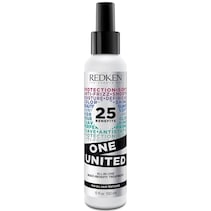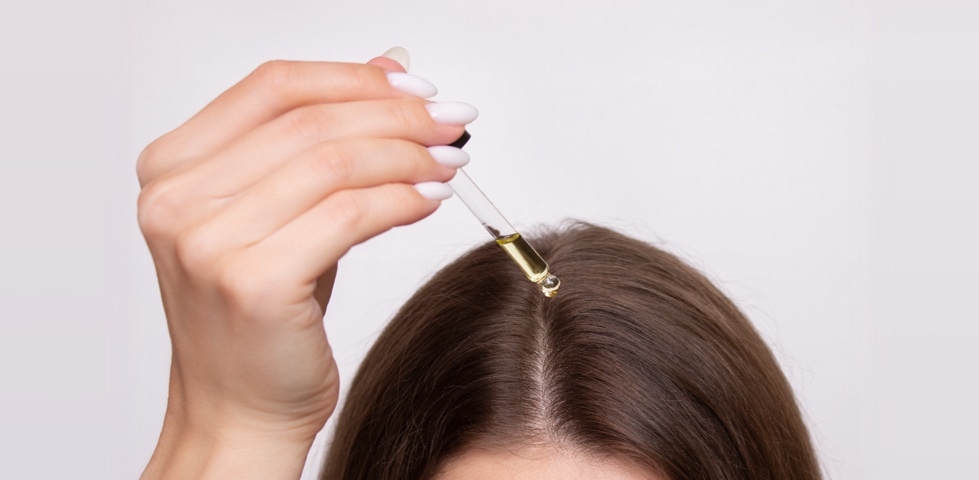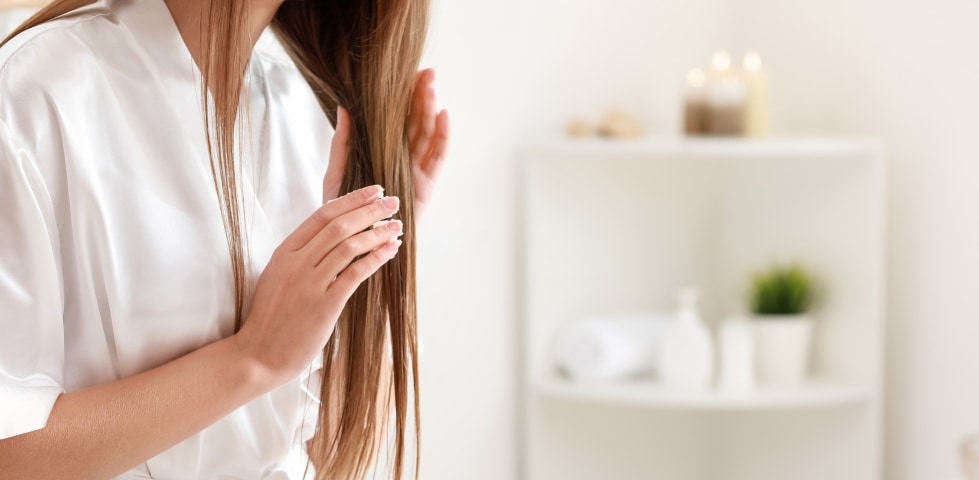
Avoiding hair breakage – causes and haircare tips for brittle hair
Hair breakage makes your hair become thin and dull. It feels unpleasantly brittle and loses elasticity. To get rid of hair breakage, you should react to the very first signs of breakage. We show you which techniques and haircare tips can prevent hair breakage and how damaged hair can become healthy and resilient again.
12 January 2024 • 4 min. reading time
Table of contents
What does hair breakage look like?
Hair breakage is often confused with split ends. While with split ends the ends of the hair split, with hair breakage the hair simply breaks off – both on the ends and also the lengths as well as on the crown. Badly damaged hair can even break off at the roots.
When you look at healthy hair, you see clearly perceptible ends. By contrast, hair that is affected by breakage displays smooth ends with white dots. Further white-coloured breakage areas can be visible in the lengths. If you bend a strand of hair in a breakage area, the lower end simply breaks off.
Broken hair ends are prone to becoming tangled quicker, which makes the hair harder to comb. If you notice changes in the hair texture and in your daily haircare, you should examine the hair ends closely.
Hair types that are prone to hair breakage
It is normal for some strands of hair to break off when caring for it and during daily styling – e.g. when you pull off a scrunchie or use a sharp-edged hair clasp. It becomes a problem if hair breakage is distributed over the entire head and occurs at different lengths. The following hair types are particularly prone to hair breakage:
- Damaged hair: Hair with a broken hair structure can no longer store sufficient moisture and breaks off many times in the area of the crown.
- Grey hair: Through the loss of the ability to store moisture, grey hair is drier and is more prone to hair breakage.
- Very frizzy hair: Curly and frizzy hair is often thick and prone to dryness, which favours hair breakage.
- Fine hair: Due to its smaller diameter, fine hair is particularly prone to damage and needs lots of attention and gentle daily haircare.
- Hair with high and low porosity: Porosity is a measurement of how well hair can absorb and retain moisture. Hair with high porosity can absorb moisture but not store it. Hair with low porosity cannot absorb moisture at all and is particularly problematic, which makes it prone to hair breakage.
Causes of hair breakage
To effectively prevent hair breakage and be able to combat it, it is important to know the causes. The reasons for hair breakage can be found in many wrong haircare and styling routines that stress the hair excessively:
- Wrong brushing and combing: Heavy brushing of tangled and/or wet hair can lead to hair breakage. Unsuitable hairbrushes are often partly responsible for hair damage. Leave-in products make hair easy to comb and deliver precious moisture. Special detangling brushes are super soft and make it possible for you to brush your hair gently. The lower the resistance when brushing, the lower the likelihood of hair breakage.
- Heavy blow-drying and straightening: Heat damages the hair and draws out moisture. The drier and more stressed the hair, the more it is prone to hair damage. To avoid hair damage with brittle hair, you should use hair straighteners only up to a maximum temperature of 180 degrees Celsius and draw them through each strand individually. Blow-drying on the medium and cold setting at a sufficient safety distance prevents hair damage caused by burning.
- Frequent hair colouring: If you like to dye or bleach your hair, chemicals can be the cause of hair breakage. High-quality hair treatments, hair masks and conditioners supply your coloured hair with lots of extra moisture and give it sufficient time to regenerate if the hair is already damaged. A colour break of two to three months is best bridged with hair tints and root sprays.
- Challenging hairstyles: Tight plaits, severe buns and up-dos stress the hair. It is best to tie sensitive and damaged hair in a loose ponytail with soft, wide scrunchies or to replace a severe bun with a messy bun.
- Excessive hair washing: If you wash your hair very frequently – and maybe even with the wrong shampoo – the hair and scalp lose lipids and moisture. If hair breakage occurs, you should wash your hair less often. A dry shampoo enables you to make oily roots look as if they have been freshly washed. If you wash your hair, you should only shampoo the roots and nourish the lengths and ends with conditioner. After hair washing it is sensible to wrap the hair in a soft towel and avoid rubbing the hair dry.
- Blunt hair scissors: If you cut your hair yourself, you should absolutely invest in a pair of professional hair scissors. The use of blunt scissors can lead to split ends and hair breakage. The best thing for the health of your hair is to have your ends trimmed regularly.
- Lack of nutrients: With a poor and unbalanced diet you do not supply your body with all the necessary nutrients. Along with a long-term change in diet, diet supplements and vitamin preparations help to prevent hair breakage. Keratin, silicon and biotin as well as vitamins B and C are important for hair health.
- Hair breakage while sleeping: The wrong bed linen with a coarse outer surface texture can roughen the hair so badly that split ends and hair breakage appear. If you like to tie your hair overnight, you should make a loose bun and use soft, wide scrunchies. Pillowcases made of silk and satin prevent hair breakage through their smooth texture and soft feel.
Beware
Hair breakage can progress in the direction of the roots. Even if you find it hard to do, you should get an experienced hairdresser to cut your hair until only healthy hair remains.
How can hair breakage be avoided?
1. Tip: Use moisturising products
If your hair feels dry and straw-like, you should opt for moisturising haircare products that support your hair in absorbing and retaining moisture. Products that contain silicones and sulphates are taboo. Haircare products that contain panthenol, hyaluron, bamboo and keratin produce positive effects. Special protein hair treatments have microproteins, which can repair damage in the hair cuticle – the outer layer – and smooth the hair texture. If you notice the opposite effect, your hair’s porosity is too low and it therefore has a naturally higher protein content. In this case, moisturising hair treatments suffice.
Moisturising care for brittle hair
Moisturising care for brittle hair
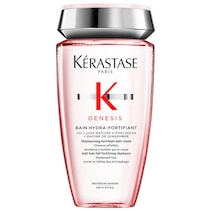
Kérastase
Genesis
Hair care
Bain Hydra-Fortifiant

35.00 € 31.50 €
- 27.30 €
- 24.57 €
- 35.00 €
- 31.50 €
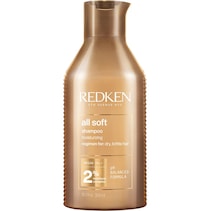
Redken
All Soft
Dry hair
Shampoo

26.00 € 23.40 €
- 20.28 €
- 18.25 €
- 26.00 €
- 23.40 €
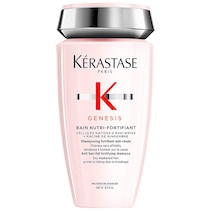
Kérastase
Genesis
Hair care
Bain Nutri-Fortifiant

35.00 € 31.50 €
- 27.30 €
- 24.57 €
- 35.00 €
- 31.50 €
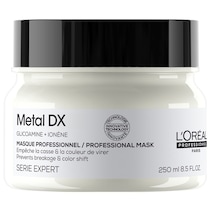
L’Oréal Professionnel Paris
Serie Expert Metal DX
Hair care
Professional Mask

34.50 € 31.05 €
- 26.91 €
- 24.22 €
- 34.50 €
- 31.05 €
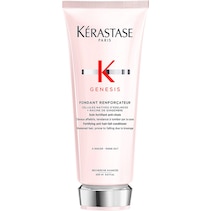
Kérastase
Genesis
Hair care
Fondant Renforçateur

46.80 € 42.12 €
- 36.50 €
- 32.85 €
- 46.80 €
- 42.12 €
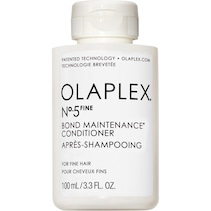
Olaplex
Hair care
Hair
No.5 Fine Bond Maintenance Conditioner

16.00 € 14.40 €
- 12.48 €
- 11.23 €
- 16.00 €
- 14.40 €
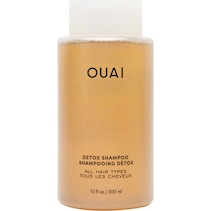
Ouai
Shampoo
Hair
Detox Shampoo

31.95 € 28.76 €
- 24.92 €
- 22.43 €
- 31.95 €
- 28.76 €
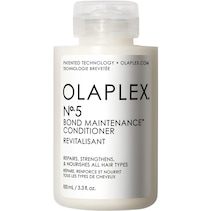
Olaplex
Hair care
Hair
Bond Maintenance Conditioner No.5

16.00 € 14.40 €
- 12.48 €
- 11.23 €
- 16.00 €
- 14.40 €
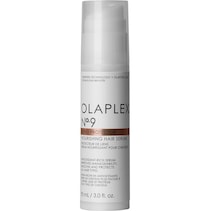
Olaplex
Hairstyling
Hair
N°9 Bond Protector Nourishing Hair Serum

30.00 € 27.00 €
- 23.40 €
- 21.06 €
- 30.00 €
- 27.00 €
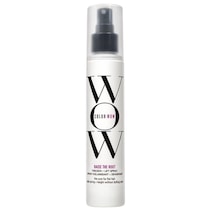
COLOR WOW
Styling
Hair care
Raise The Root Thicken & Lift Spray

27.95 € 25.16 €
- 21.80 €
- 19.62 €
- 27.95 €
- 25.16 €
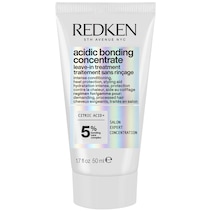
Redken
Acidic Bonding Concentrate
Damaged hair
Leave-in Treatment

14.90 € 13.41 €
- 11.62 €
- 10.46 €
- 14.90 €
- 13.41 €
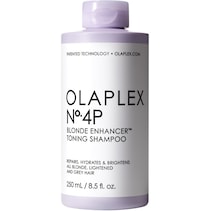
Olaplex
Hair care
Hair
N°4P Blonde Enhancer Toning Shampoo

32.00 € 28.80 €
- 24.96 €
- 22.46 €
- 32.00 €
- 28.80 €
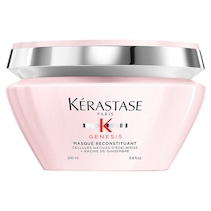
Kérastase
Genesis
Hair care
Masque Reconstituant

61.00 € 54.90 €
- 47.58 €
- 42.82 €
- 61.00 €
- 54.90 €
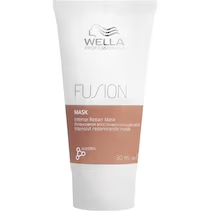
Wella
Fusion
Professionals Care
Intense Repair Mask

12.35 € 11.12 €
- 9.63 €
- 8.67 €
- 12.35 €
- 11.12 €
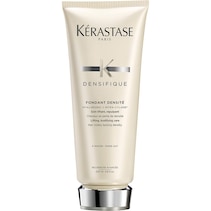
Kérastase
Densifique
Hair care
Fondant Densité

46.80 € 42.12 €
- 36.50 €
- 32.85 €
- 46.80 €
- 42.12 €
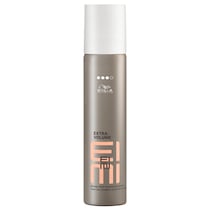
Wella
Volume
EIMI
Extra Volume Styling Mousse

9.50 € 8.55 €
- 7.41 €
- 6.67 €
- 9.50 €
- 8.55 €
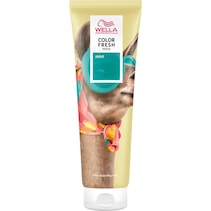
Wella
Semi-permanent colours
Professionals
Color Fresh Mask

22.95 € 20.66 €
- 17.90 €
- 16.11 €
- 22.95 €
- 20.66 €
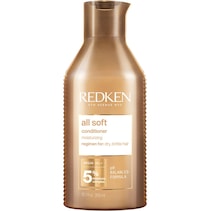
Redken
All Soft
Dry hair
Conditioner

28.90 € 26.01 €
- 22.54 €
- 20.29 €
- 28.90 €
- 26.01 €
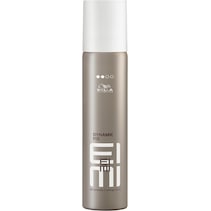
Wella
Fixing
EIMI
Dynamic Fix 45 Sec. Modeling Spray

9.50 € 8.55 €
- 7.41 €
- 6.67 €
- 9.50 €
- 8.55 €
2. Tip: Brush hair carefully
If you want to brush your hair immediately after washing, a wet brush is perfect for this. Take your time and work with as little force as possible from the ends to the roots. It is better to brush smaller strands rather than large areas of hair all at once.
3. Tip: Use less heat
Heat-free styling with heatless curlers, the use of a heat-protection oil or hairsprays with UV filters protect your hair from drying out. If it suits your personal style, you can wear your hair loose more often and avoid tight hairstyles. Do not forget to have your ends trimmed every three months at least – especially if you have naturally dry and fine hair.
Hitzefreies Styling
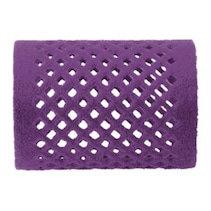
Efalock Professional
Rollers
Hairdressing supplies
Metal winder flocked
13 mm - 50 mm diameter

7.50 € 6.75 €
- 5.85 €
- 5.27 €
- 7.50 €
- 6.75 €
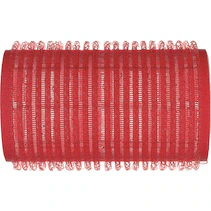
Efalock Professional
Rollers
Hairdressing supplies
Sticky curler small
13 mm - 48 mm diameter

3.00 € 2.70 €
- 2.34 €
- 2.11 €
- 3.00 €
- 2.70 €
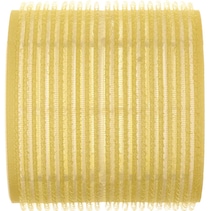
Efalock Professional
Rollers
Hairdressing supplies
Sticky winder large
51 mm - 78 mm diameter

4.00 € 3.60 €
- 3.12 €
- 2.81 €
- 4.00 €
- 3.60 €
Hitzeschutz
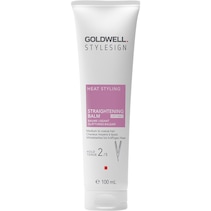
Goldwell Stylesign
Heat Styling
Hair care
Stylesign Heat Styling Smoothing Balm

24.95 € 22.46 €
- 19.46 €
- 17.51 €
- 24.95 €
- 22.46 €
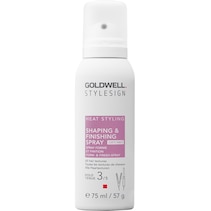
Goldwell Stylesign
Heat Styling
Hair care
Stylesign Heat Styling Form-&Finish-Spray

14.95 € 13.46 €
- 11.66 €
- 10.49 €
- 14.95 €
- 13.46 €
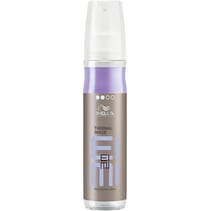
Wella
Smooth
EIMI
Thermal Image Heat Protect Spray

25.35 € 22.82 €
- 19.77 €
- 17.80 €
- 25.35 €
- 22.82 €
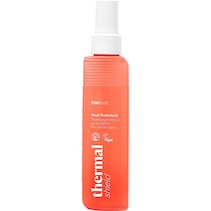
Hairlust
Styling
Hair
Thermal Shield™ Heat Protectant

25.95 € 23.36 €
- 20.24 €
- 18.22 €
- 25.95 €
- 23.36 €
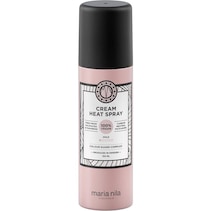
Maria Nila
Style & Finish
Hair styling
Cream Heat Spray

27.95 € 25.16 €
- 21.80 €
- 19.62 €
- 27.95 €
- 25.16 €
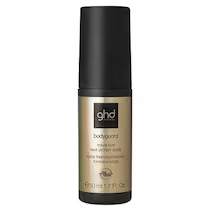
ghd
Hair products
Hair styling
bodyguard - for all hair types

14.95 € 13.46 €
- 11.66 €
- 10.49 €
- 14.95 €
- 13.46 €
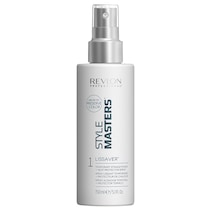
Revlon Professional
Style Masters
Hairstyling
Temporary Straightener + Heat Protector Spray
Lissaver

19.10 € 17.19 €
- 14.90 €
- 13.41 €
- 19.10 €
- 17.19 €
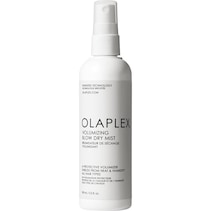
Olaplex
Hairstyling
Hair
Volumizing Blow Dry Mist

30.00 € 27.00 €
- 23.40 €
- 21.06 €
- 30.00 €
- 27.00 €
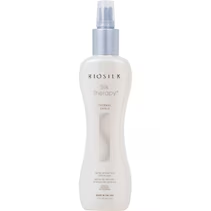
BIOSILK
Silk Therapy Styling
Collection
Thermal Shield heat protection spray

17.95 € 16.16 €
- 14.00 €
- 12.60 €
- 17.95 €
- 16.16 €
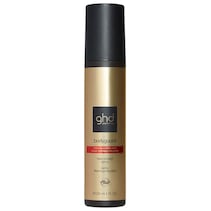
ghd
Hair products
Hair styling
bodyguard - for coloured hair

29.95 € 26.96 €
- 23.36 €
- 21.02 €
- 29.95 €
- 26.96 €
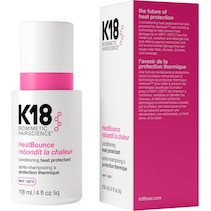
K18
Skin care
Hair
HeatBounce Conditioning Heat Protectant

47.95 € 43.16 €
- 37.40 €
- 33.66 €
- 47.95 €
- 43.16 €
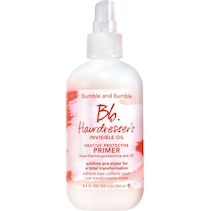
Bumble and bumble
Pre-Styling
Styling
Heat/UV Protective Primer
Hairdresser's Invisible Oil

16.95 € 15.26 €
- 13.22 €
- 11.90 €
- 16.95 €
- 15.26 €
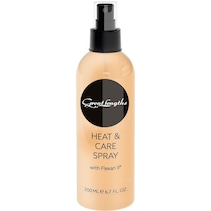
Great Lengths
Hair care
Hair
Heat & Care Spray

24.95 € 22.46 €
- 19.46 €
- 17.51 €
- 24.95 €
- 22.46 €
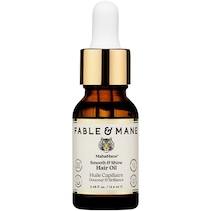
Fable & Mane
MahaMane
Hair care
Smooth & Shine Hair Oil

18.95 € 17.06 €
- 14.78 €
- 13.30 €
- 18.95 €
- 17.06 €
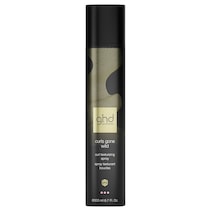
ghd
Hair products
Hair styling
Curls Gone Wild Curl Texturizing Spray

26.95 € 24.26 €
- 21.02 €
- 18.92 €
- 26.95 €
- 24.26 €
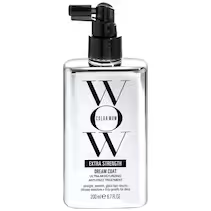
COLOR WOW
Care
Hair care
Dream Coat Extra Strength

40.95 € 36.86 €
- 31.94 €
- 28.75 €
- 40.95 €
- 36.86 €
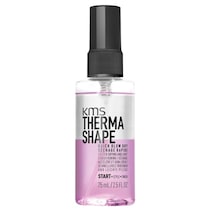
KMS
Thermashape
Hair
Quick Blow Dry

13.90 € 12.51 €
- 10.84 €
- 9.76 €
- 13.90 €
- 12.51 €
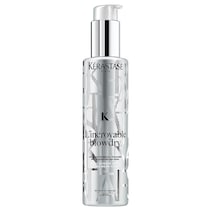
Kérastase
Styling
Hair care
L'Incroyable Blowdry

44.60 € 40.14 €
- 34.79 €
- 31.31 €
- 44.60 €
- 40.14 €

Redken
Acidic Bonding Concentrate
Damaged hair
Leave-in Treatment

14.90 € 13.41 €
- 11.62 €
- 10.46 €
- 14.90 €
- 13.41 €

ghd
Hair products
Hair styling
bodyguard - for fine hair

29.95 € 26.96 €
- 23.36 €
- 21.02 €
- 29.95 €
- 26.96 €
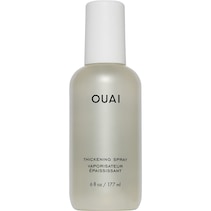
Ouai
Hairstyling
Hair
Thickening Spray

29.95 € 26.96 €
- 23.36 €
- 21.02 €
- 29.95 €
- 26.96 €
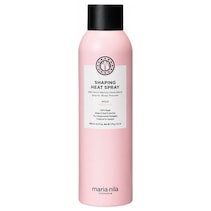
Maria Nila
Style & Finish
Hair styling
Shaping Heat Spray

27.95 € 25.16 €
- 21.80 €
- 19.62 €
- 27.95 €
- 25.16 €
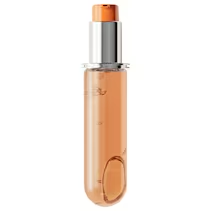
Kérastase
Discipline
Hair care
Oléo-Relax
Hair oil

55.60 € 50.04 €
- 43.37 €
- 39.03 €
- 55.60 €
- 50.04 €
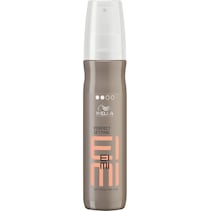
Wella
Volume
EIMI
Perfect Setting Light Setting Lotion Spray

25.35 € 22.82 €
- 19.77 €
- 17.80 €
- 25.35 €
- 22.82 €
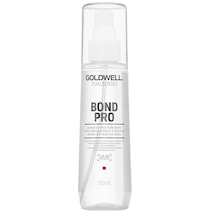
Goldwell Dual Senses
Bond Pro
Hair care
Repair & Structure Spray

23.95 € 21.56 €
- 18.68 €
- 16.81 €
- 23.95 €
- 21.56 €
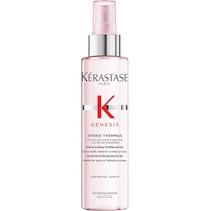
Kérastase
Genesis
Hair care
Défense Thermique

43.60 € 39.24 €
- 34.01 €
- 30.61 €
- 43.60 €
- 39.24 €
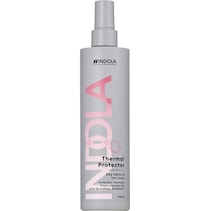
INDOLA
INNOVA Wash & Care
Care & Styling
Setting Thermal Protector

14.95 € 13.46 €
- 11.66 €
- 10.49 €
- 14.95 €
- 13.46 €
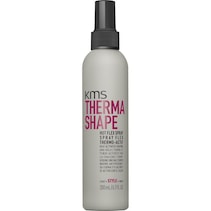
KMS
Thermashape
Hair
Hot Flex Spray

30.00 € 27.00 €
- 23.40 €
- 21.06 €
- 30.00 €
- 27.00 €
4. Tip: No chemical treatment
With the right haircare, diet and styling technique, hair breakage is only a temporary phenomenon. Temporary avoidance of bleaching, colouring and perming protects a damaged cuticle layer. Once your hair is healthy again, you can also colour and bleach it again in your usual rhythm.
Takeaway
Hair breakage is a widespread phenomenon that can be avoided with prudent handling and the right haircare. Especially in summer, it is important to protect the hair from the negative effects of UV radiation, chlorine and salt water to counteract drying out. If white dots show on the hair ends, restorative haircare smooths the hair texture with rinses, leave-in products, oils and protein treatments, delivers moisture and makes the hair silkier. Soft styling accessories, special brushes plus soft towels and cloths help to avoid hair breakage and ensure that hair that is prone to breakage is soon a thing of the past.


